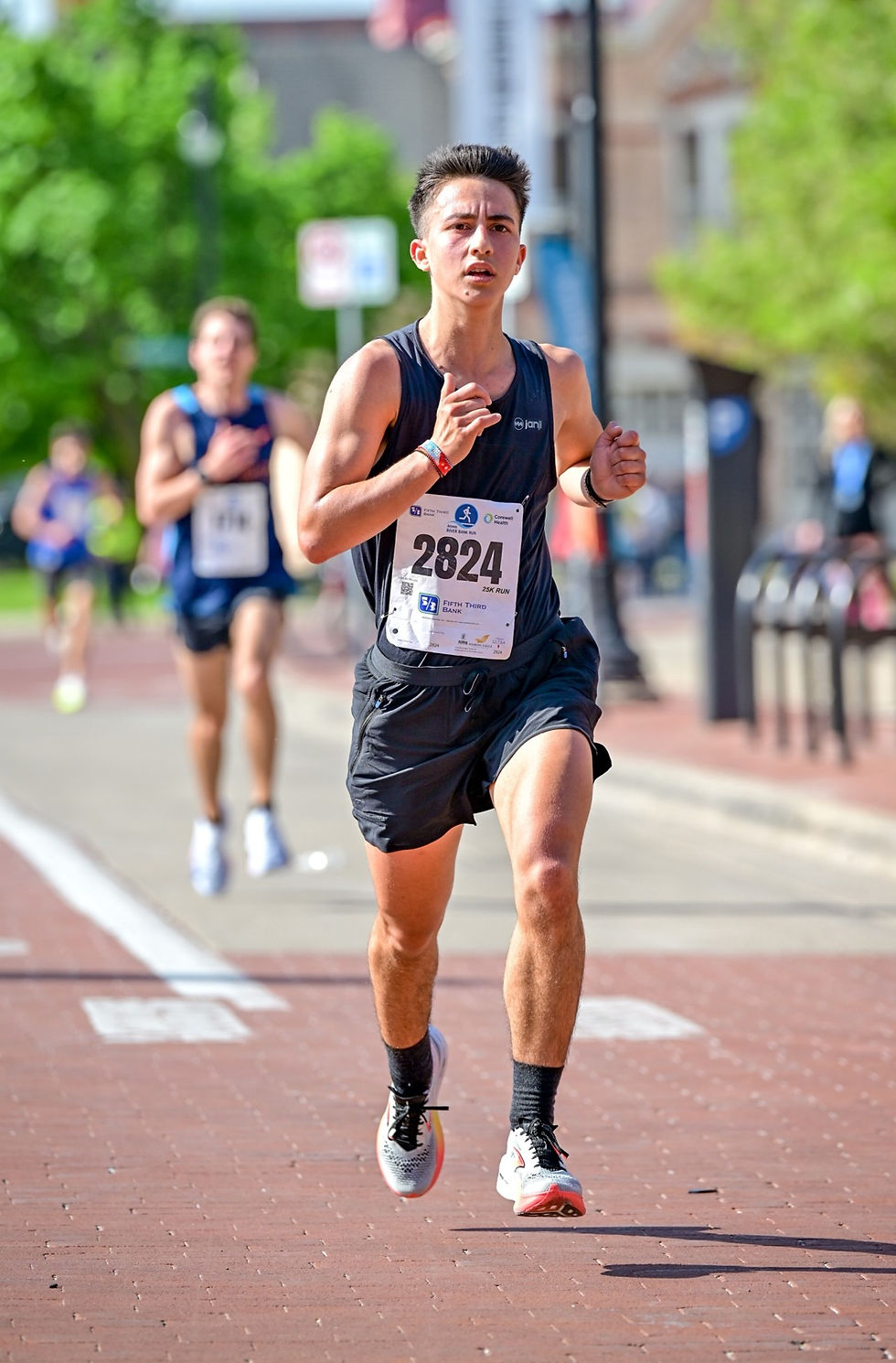Competing and Representing at the Marathon
- charlie4243
- Sep 23, 2025
- 4 min read

English Jackson, one of the nonbinary favorites in this year’s marathon, arrives at the Medtronic Twin Cities Marathon in the midst of an important, meaningful journey as a runner and a person. English shares that story in this recent interview with Twin Cities In Motion.
Can you share a little bit about how you returned to running in college after stepping away after high school, and share where running fits into your life now?
When I graduated high school, I was burnt out. I needed space to just be a college student for a while, focus on my degree, and step away from the structure and pressure that had defined running for me up to that point. About halfway through my freshman year, I found myself sitting in a kinesiology class listening to lectures about the physiology of training and racing, and something in me lit back up. I realized I wasn’t done with the sport; I just needed to come back to it on my own terms.
That realization led me to transfer to Bridgewater College, where I joined the cross country and track teams. Getting back into training, having a team again, and feeling that sense of belonging reignited my love for running.
Now, running is how I move through the world. It’s where I process my day, where I meditate, where I connect with my friends and my body. I love its simplicity. The clarity that comes from just putting one foot in front of the other. It’s the thing that grounds me and allows me to bring my best self back into my classroom, my family, and my relationships.
As an elite runner in the women’s professional ranks, what was your most satisfying accomplishment?
Without a doubt, the U.S. Olympic Trials marathon. Standing on the line that morning felt like the culmination of years of work - every early run, every injury, every comeback. My 2:35 and 31st-place finish was a PR for me on a less than ideal day and course. Coming down the final stretch of that race, hearing the crowd, knowing I was out there competing with the best in the country, was surreal. That moment will stay with me forever.
You were part of the women’s Best of the Midwest field for Twin Cities last year, but withdrew with an injury. Why did TCM interest you last year and what is bringing you “back” this year?
Yes, I tore the labrum in my hip last year, and we ultimately made the call to scratch from the race. It was devastating in the moment, but the decision was about more than one race, it was about preserving my long-term health and giving myself the chance to keep racing for years to come.
What drew me to TCM last year is the same thing that brings me back this year: the spirit of the event. It’s such a community-centered race, and I felt so supported through the process of having to withdraw and this year coming back and competing in the nonbinary division. Alana [Dillinger, TCM’s pro athletes lead] and the entire staff were kind, communicative, and made me feel like I belonged. Coming back this year feels like unfinished business, but also like coming home to a community that has shown me respect and inclusion.
Why have you decided to run in the nonbinary division this year as opposed to in the women’s professional field?
This past year has been a season of deep reflection and growth for me. I’ve made changes in my personal and professional life that have allowed me to step more fully into who I am, including beginning to use he/him pronouns. That shift has been huge. It’s one thing to know who you are privately, and another to step into the world and say, “This is me.”
Choosing to race in the nonbinary division feels like an extension of that same step toward authenticity. It’s about showing up on race day in a way that matches who I am every other day of the year. It feels powerful, grounding and freeing.
For me, sport is at its best when everyone feels like they belong. There’s something electric about watching someone show up fully as themselves. It's transformative, even for the people watching. Lining up in the nonbinary division feels like I’m stepping into that space of belonging for myself. And it’s made me fall even more in love with running — I’m running faster than ever because I finally feel at home in my own body.
How much did the potential loss of hundreds or even thousands of dollars in prize money figure into your decision?
It’s definitely something I was aware of, but it wasn’t what guided my choice. At the end of the day, I don’t run for prize money. I run because I love the sport and because it gives me a platform to show up authentically. Choosing to compete in the division that reflects my identity was about validating myself, not chasing a paycheck.
What are your goals for the nonbinary race – both for performance and for representation?
My performance goal is to show up ready to compete. I want to run a smart, gutsy race and see what I’m capable of on the day. I’ll always be chasing PRs and testing myself against the field.
But just as important is what this race means for representation. I want trans and nonbinary athletes to see me on the line and know there’s space for them here too - not just to participate, but to race hard, to go after big goals, to be celebrated. If I can help shift the narrative even a little about who belongs in this sport, that’s a win.


